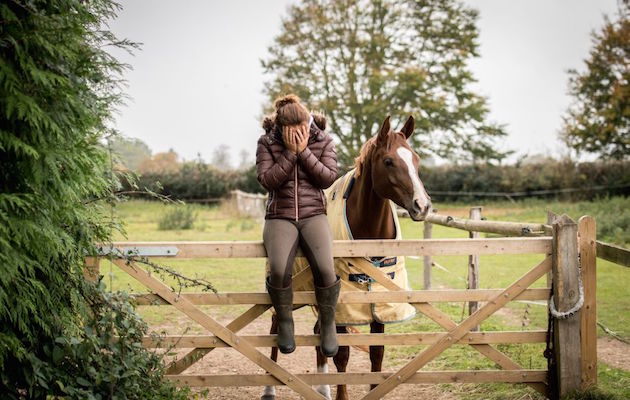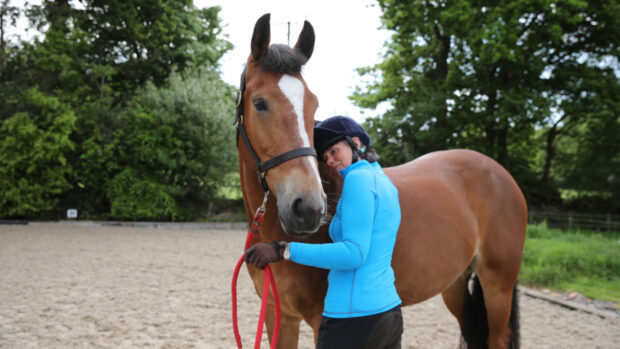Over 98% of grooms who answered a recent survey said the equestrian industry is not doing enough to support their mental health and wellbeing.
More than 1,300 people took part in the Grooms Minds study, which was launched by the British Grooms Association (BGA) in response to increasing calls for help and advice on the topic.
The initial findings show that 81% of respondents are unhappy, more than 83% have suffered from stress or mental health issues and over 70% had been bullied, by employers or fellow staff.
“There is clearly a problem within this profession,” said Nottingham Trent University’s Dr Carol Hall, associate professor in equine behaviour and welfare, who wrote the initial report.
“There are some excellent employers out there, but the results of this survey suggest that this is not always the case.
“The occurrence of stress and mental wellbeing issues within this profession is indicative of the need to do better.”
BGA founder and executive director Lucy Katan hopes the findings will act as a “wake-up call” to the equestrian industry.
“I hope industry leaders will realise this isn’t acceptable,” she told H&H.
“These statistics are disgusting. This is an alert to equestrian employers, who have to be aware of the wellbeing of their staff and their responsibilities in that area.
“The whole mindset and culture of the industry needs to change.”
Dr Hall described the initial findings as “shocking”.
“Why on earth do people think they can treat people like this?” she told H&H.
The report also stresses that too many grooms are still not being employed correctly according to appropriate legislation. Just over 60% of respondents were employed with 30% self-employed, including 163 who were told they were self-employed by their boss when this was not true based on employment law.
Only 46% of grooms had paid leave, 30% were entitled to sick pay, and 36% had written? contracts.
“The research highlights the need for urgent change within the industry,” Dr Hall added.

Why riders can be susceptible to mental health problems — and how to take action

Tackling depression: Jockeys speak out in new video
AP McCoy, Daryl Jacob, Mark Enright and Leighton Aspell speak candidly about the mental health challenges they’ve faced in a

Grooms urged to talk about their mental health
The British Grooms Association has launched a mental wellbeing project to tie in with World Mental Health Day
Both Dr Hall and Ms Katan hope that if employers comply with legislation, it could lead to better treatment of staff.
“It would be hoped that by putting in place a more structured approach associated with clearly defined contractual requirements, those employers who have not treated their staff appropriately will start to recognise their responsibilities both in terms of supporting employees in their roles and recognising the need to treat them with consideration,” Dr Hall said.
For more on this issue, see next week’s Horse & Hound magazine, out 16 November.




